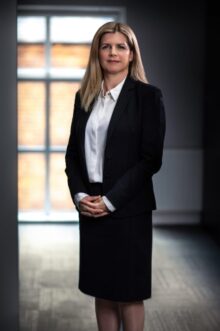England and Manchester City footballer John Stones has separated from Millie Savage, his partner and the mother of his child. It’s always sad when a relationship ends, and although we can assume John and Millie won’t face any financial worries as a result of their separation, that’s not always the case when a relationship ends.
However, despite John Stones’ wealth, his partner’s financial claims are likely to be very limited due to the fact that they are not married. Indeed the difference between the financial claims that can be made against a former partner, rather than a former spouse, is greatest when one of them is very wealthy and the other is not.
“The reality is that the law in England and Wales has not caught up with the fact that many couples now live together and have children, but do not marry.”
We’re not married: what happens to our finances when we separate?
If a couple are married and they divorce, all the assets owned by them both, whether in their sole names, in joint names or owned with a third party, are likely to be considered matrimonial assets. The court has the power to divide these assets as it sees fit and can transfer assets owned by one spouse to the other, order the payment of a lump sum, make pension sharing orders and order that one spouse pay maintenance to the other. In addition, child maintenance will need to be paid to the parent the children live with until they are 17 years old, or cease full-time secondary education.
If a couple is not married then the assets they own jointly, such as a house, will be divided equally between them, or in accordance with any other agreement that they have regarding the ownership of the property, such as in a trust deed. They cannot make any claims against assets owned by their former partner, unless they can establish a legal interest in it, usually by establishing that they made a financial contribution to that asset.
There is no mechanism for a former partner to make a claim for a lump sum, a pension sharing order or an order for maintenance for themselves (they can make a claim for child maintenance on behalf of any children living with them from the other parent).
If a couple is not married, they separate, and there are children under the age of 16 (or before the child’s 18th birthday in exceptional circumstances), it is possible to apply under the Children Act for the provision of a house for the child and the main carer of the child to live in, until the child becomes an adult. However, once the child becomes an adult that child, and the main carer, is no longer entitled to live in the house; the parent who bought the house can do what they like with it. This is known as a Schedule 1 claim.
It is also possible for the main carer to apply for “top up” child maintenance, which is maintenance greater than the maximum Child Maintenance Service assessment, on behalf of a child, and a school fees order if the other parent is wealthy.
The reality is that the law in England and Wales has not caught up with the fact that many couples now live together and have children, but do not marry. In Scotland, the position is different, with former partners having the right to make some financial claims against their former partner, including claiming maintenance for themselves.
If you are worried about your legal position if you separate from your partner, we would urge you to consult a specialist family lawyer.
